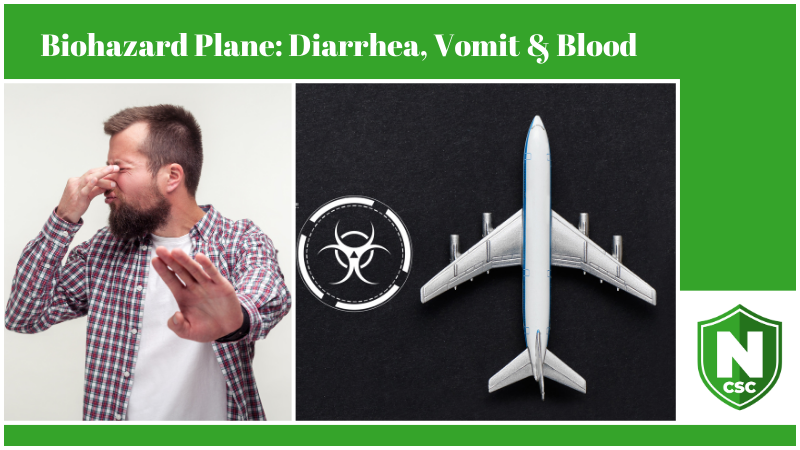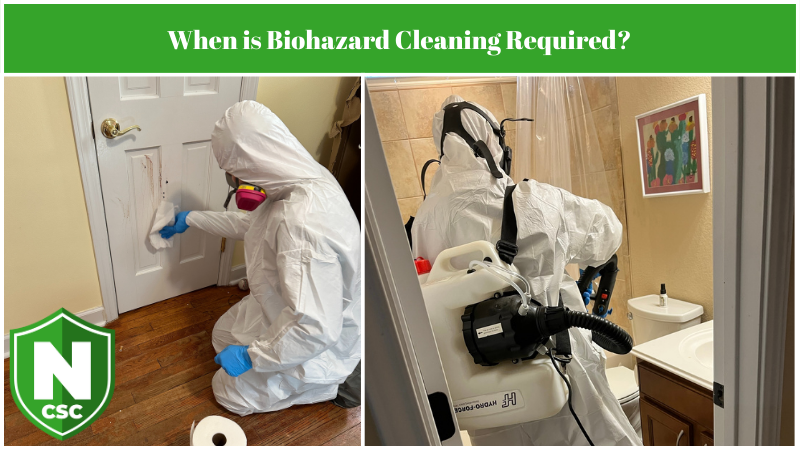Rest Easy: Biohazard Remediation and the Hospitality Industry

Biohazard Remediation and the Hospitality Industry
When we check into a hotel or motel room, we have a routine. As soon as we haul in our suitcases, road-weary as we might be, most of us take a cursory look around to make sure the room’s clean. Those of us who’re safety-minded will check the windows and deadbolt to make sure they’re working, while others will go the extra mile and check mattress seams for bed bugs, and the space under the furniture for anything left behind by previous customers. After all, it’s important to take precautions to stay safe while you’re away from home.
Hotel housekeeping staff work hard at their jobs, but sometimes they miss things. While many hotels are beginning to replace bulky bedspreads with lighter, machine-washable bed covers, we try not to think about what a black light would reveal, even in the highest-rated establishments.
Has Anyone Died In This Room?
We might consider the lives of the hundreds of people who have stayed there, and it’s only human for our minds to wander into the morbid: Has anybody died in this room?
Odds are, somebody has. Whether or not the death was peaceful or traumatic, people often die of natural causes away from home. Cruise ships, hotels and motels usually have protocols in place for dealing with deaths on the premises, interacting with bereaved family members and ensuring the safety of future customers.
The latter is most important when the death is traumatic or left undiscovered for a lengthy period of time (as is often the case with residential hotels).
Checking In to Check Out
Studies on suicide statistics involving the hospitality industry are rare, but one study based upon medical examiner records in King County, Washington for the years 2002-2004 noted that nationwide, fewer than four suicides out of 100,000 registered room occupancies resulted in a suicide. (The authors noted that the Seattle area experienced a much higher rate, 11.7 suicides in 100,000 stays). Many of these suicides do not involve non-traumatic means such as self-inflicted cutting or gunshots, so it’s unlikely that your home on the road ever resembled the setting for a Stephen King novel. But many people who plan to end their lives do so away from home so as to spare loved ones the experience of discovering their body or cleaning up their remains.
Many people who attempt suicide are unsuccessful, of course, and trauma-related attempted and completed suicides require professional cleanup services. The hospitality industry is well aware of the requirements of trauma cleanup, also referred to as “crime scene cleanup”, and is taking steps to be proactive in suicide prevention.
Other common concerns involve safeguarding from crimes in hotels, which generally involves taking necessary precautions and reporting unusual behavior. Thankfully, hotel chains are vigilant about keeping their establishment safe, but it is a topic all travelers need to be aware of.
Do Not Disturb
If a customer who has passed away by suicide or natural causes has reserved a room for several days, the individual may not be discovered until the decomposition is well underway. This potentially doesn’t take much time at all, depending on how long it takes for the body to decompose. Unattended death leaves behind bodily fluids and biological debris beyond what is reasonable for hotel staff to handle, which is one of the reasons hospitality chains rely upon biohazard remediation companies as indispensable vendors, and establish relationships with reputable, licensed crime scene cleanup companies before they’re actually needed.
The Biohazard Remediation Process
Well-run hospitality companies understand the need for a professional, discreet and empathetic trauma recovery company. A representative from a major nationwide hotel chain, who prefers to remain anonymous, has National Crime Scene Cleanup’s call center number on the front page of his protocol binders for such occasions. “Our staff are trained to handle the worst-case scenario, but we don’t expect them to be fully prepared for the emotional impact associated with these events,” he said. “National Crime Scene Cleanup has been fantastic with our staff, and since they have technicians on call at any time, they take over the situation with minimal disturbance to our employees and other guests.”
National Crime Scene Cleanup
This customer recalls a specific incident. “Unfortunately, we had a domestic violence shooting in which all parties survived, fortunately, but injuries caused a lot of damage. The National Crime Scene Cleanup team cleaned or replaced everything, from drywall and subfloors to ceiling materials and tile grout. They even found and removed blood that had entered the HVAC system, which would have caused odors down the line.”
He added, “We don’t deal with flashy companies with obvious graphics on their vehicles, or who grandstand for the media using inappropriate, sensational language. And some do because they know their industry can attract attention in, let’s say, unprofessional ways.” National Crime Scene Cleanup depends upon industry, insurance, and public safety referrals to generate business.
Some hotel companies rely on biohazard remediation services for scheduled, non-trauma-related deep cleanings. Smoke odors, pet stains and other, non-traumatic bodily fluids build up in even the cleanest of establishments, requiring specialized techniques proprietary cleaning products.
Get a Good Night’s Sleep
Unless you’re attracted to hotels known for their gruesome notoriety, like Los Angeles’ Hotel Cecil or Estes Park’s Stanley Hotel, you want reassurance that your room is a safe, clean place to rest your weary head. Chances are, you’re more likely to find that that the honor bar hasn’t been restocked than wind up in a room tainted by the leavings of violence or suicide.
Now, whether or not the establishment is haunted is another story, and out of the scope of even the best trauma recovery specialists.




